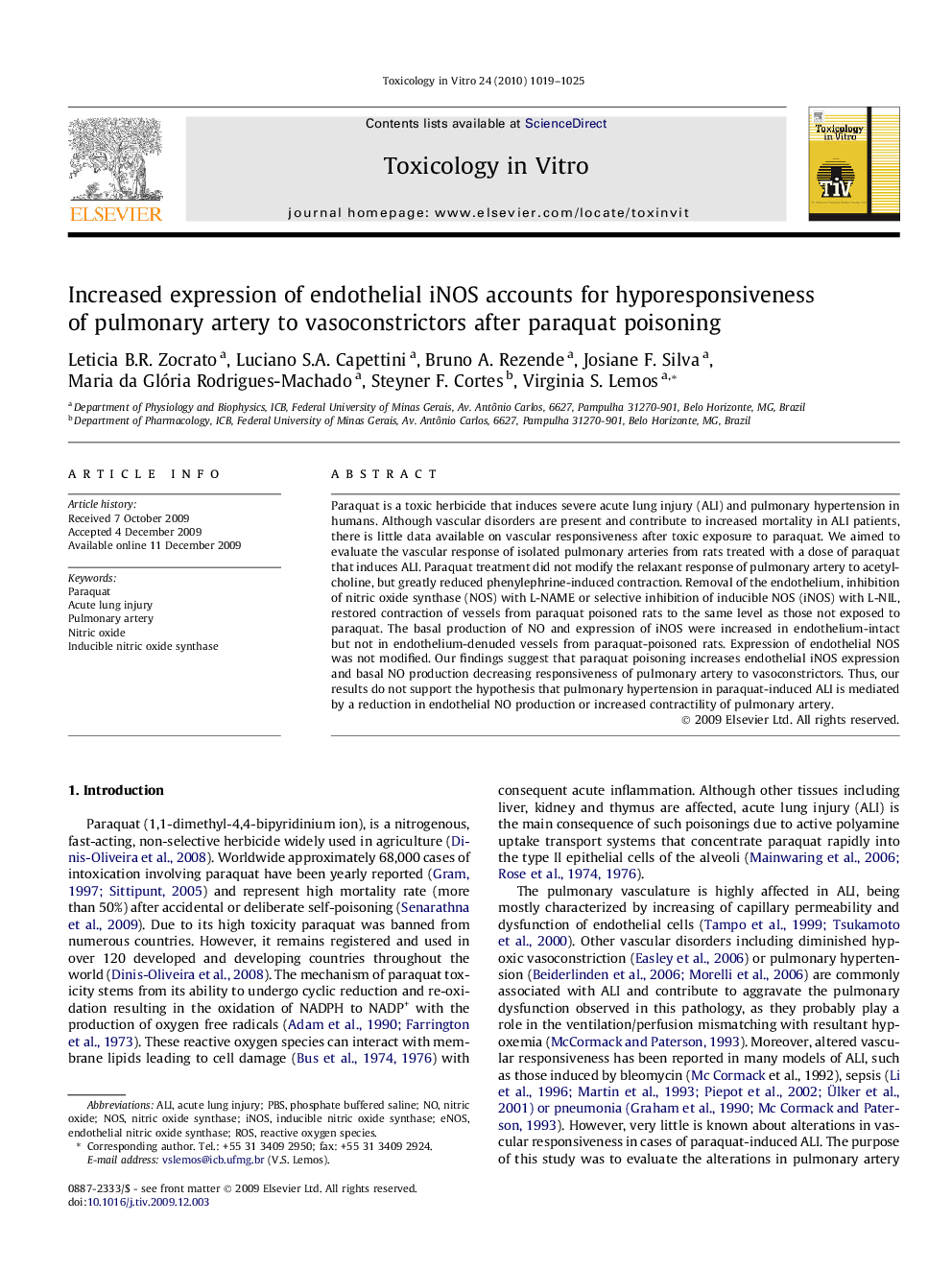| Article ID | Journal | Published Year | Pages | File Type |
|---|---|---|---|---|
| 2602964 | Toxicology in Vitro | 2010 | 7 Pages |
Paraquat is a toxic herbicide that induces severe acute lung injury (ALI) and pulmonary hypertension in humans. Although vascular disorders are present and contribute to increased mortality in ALI patients, there is little data available on vascular responsiveness after toxic exposure to paraquat. We aimed to evaluate the vascular response of isolated pulmonary arteries from rats treated with a dose of paraquat that induces ALI. Paraquat treatment did not modify the relaxant response of pulmonary artery to acetylcholine, but greatly reduced phenylephrine-induced contraction. Removal of the endothelium, inhibition of nitric oxide synthase (NOS) with L-NAME or selective inhibition of inducible NOS (iNOS) with L-NIL, restored contraction of vessels from paraquat poisoned rats to the same level as those not exposed to paraquat. The basal production of NO and expression of iNOS were increased in endothelium-intact but not in endothelium-denuded vessels from paraquat-poisoned rats. Expression of endothelial NOS was not modified. Our findings suggest that paraquat poisoning increases endothelial iNOS expression and basal NO production decreasing responsiveness of pulmonary artery to vasoconstrictors. Thus, our results do not support the hypothesis that pulmonary hypertension in paraquat-induced ALI is mediated by a reduction in endothelial NO production or increased contractility of pulmonary artery.
